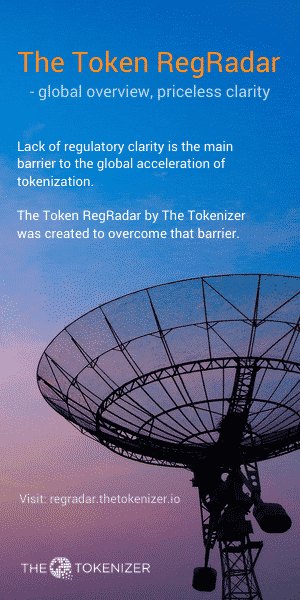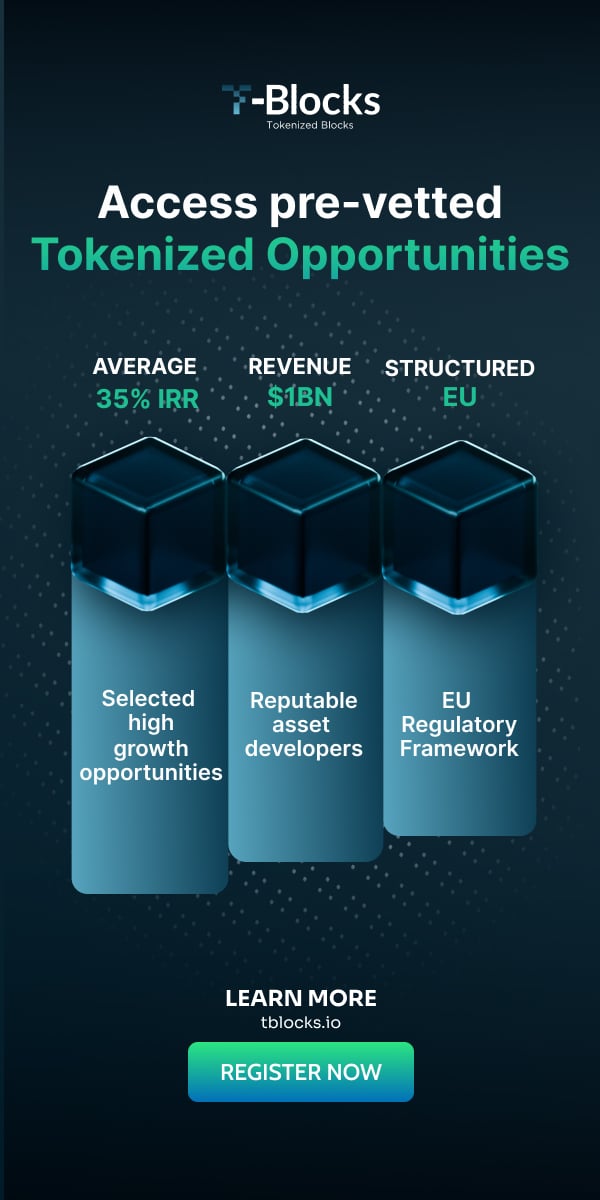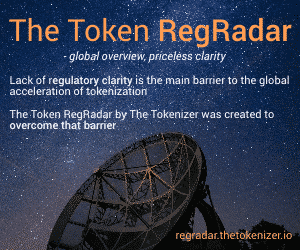Tokenization of classic cars: revival of a hidden gem for financial asset diversification?
When the 1962 Ferrari 250 GTO was auctioned off for more than 48 million dollars at RM Sotheby’s Auction on August 25, 2018, many raised their eyebrows due to the astonishing amount of money some people are willing to pay for cars over the age of 30 years. Cars tend to be considered a “bad investment”, as their value drops sharply after purchase and solely human emotions give them their true “intrinsic value”. But maybe it is in fact this emotional connection to cars which makes them so attractive from an investment standpoint. Classic cars are often sold and purchased through a variety of different channels, their value is estimated by different models and in overall, the industry is very regionally fragmented. The tokenization of these assets could cope with mentioned issues and lead to a standardized, equally fair system. Therefore further boosting this precious industry.
How issuer and investor can benefit from tokenization of classic cars
Investing in alternative assets like classic cars can have major advantages compared to traditional investments. After experiencing a high degree of volatility in the stock and currency markets amid the Covid-19 pandemic, aspects like store of value became increasingly relevant when looking for investments. Classic cars provide an efficient hedge against inflation and consequently inherit the role of storing value. When tokenized, ownership in classic cars and other illiquid assets can be distributed since partial ownership is enabled. This creates perfect conditions for a diversified portfolio to minimize risks. Now even retail investors can participate in investing as they can easily acquire fractions of the typically expensive vintage cars. This will lead to a far greater capital influx, due to the fact that classic cars are morphed into 24/7, peer-to-peer tradable assets for everyone. It is furthermore easily conductible to liquidate your assets at any desired time and day without the regular hurdles including lawyer, paperwork and costly working hours. Besides, tokenized assets in Liechtenstein are significantly attractive from a tax standpoint.
Generally, alternative assets offer promising returns, since they often act anti-cyclical and hence diversify your portfolio. Nevertheless, prosperity is plagued by disadvantages such as low transparency and a lack of liquidity in the market. This is associated with high risk on both sides – investor and owner. To counteract this, the unique Liechtenstein Token Act was implemented in January 2020. It enables the perfect legal conditions for true equity and ownership tokens. In this model, the disruptive framework offers a legally compliant structure to tokenize ownership-based rights. Amazing Blocks is a first mover in this field, by for instance conducting the first true equity tokenization worldwide and fulfilling bankless incorporation solely with ETH as an initial contribution.
Relying on the unique Liechtenstein Token Act, the physical validator within the blockchain layer enables a fully legal and licensed transfer of ownership after respective tokenization. Hence efficient purchase and sale of tokenized assets becomes instantly possible, while features like fundraising-on-the-go are some of the accompanied benefits. Illiquid collectibles like classic cars are now transformed into a new, dynamic asset class. As a result, the rather localized industry (e.g. Germany as hub) gains international access to investors paired with the promised liquidity through tokenization. Even a fund of tokenized classic cars becomes possible while investing in classic car tokens under one umbrella.
Diversification in the world of finance
Ask any successful investor, he will give you the same answer: Diversification is key. It not only helps to mitigate risk but also enables you to invest in a vast amount of different projects, which can reshape the world. Having a well-balanced portfolio is especially in times of “financial stress” essential. But as a private investor, it can at times be difficult to actually and fully diversify your portfolio. This is where tokenization gains significance, as it allows investors to also invest in real-world assets such as art, real estate or classic cars. This works without having to invest the normally large amount of money or filling out enormous amounts of paperwork. This is due to the fact that ownership can be fragmented through tokens and can be newly minted. Ownership can be split and traded whenever wanted and therefore also transferred.
Introduction to the classic car industry
The fascination with design evolution of cars, the backbone of reasons for purchasing classic cars began in 1886 when the first gasoline powered vehicle was invented by Karl Benz. If we fully want to grasp the opportunities tokenization comes across with, we first need to get an overview of the contemporary structure within the industry. According to a study conducted by the VDA (Verband der Automobilindustrie = German institution for cars), the estimated market capitalization is around 10 billion dollars. The amount of potential prospects (cars over 30 years old) exceeds 2.2 million pieces, therefore clearly illustrating the economic powers and reach that are at play here. This figure is set to grow by around 70,000 cars annually over the course of the next few years. Ultimately, vintage cars can be seen as a very attractive investment alternative, due to their auspicious performance compared to other asset classes, as illustrated in Figure 2 below.
Figure 2: Classic car investments compared to other asset classes according to the VDA
The main issue today within the industry are the various amounts of different and complex pricing models facilitated to give each car its deserved value. However, no one can ever really determine what the exact value is, due to the lack of standardization and huge regional fragmentation. Usually, the value is determined by the global inventory, the historical sale price of the vehicle, the condition of the vehicle and the going market rate based on demand. Another interesting aspect is the fact that approximately 70% of sales are conducted through peer to peer exchange making it predestined for blockchain application. Peer to peer transactions are a core element within the ever-evolving industry and tokens are exchanged through this model on a daily basis. The most common way to determine the price of a vehicle is by obtaining the services of a licensed appraiser, a costly effort, but thus far the only way to really receive a price no one can argue about.
Tokenization and classic cars combined
Now we ask ourselves the question, how can tokenization be applied in this industry? First of all, as mentioned earlier, peer to peer exchange of tokens is a core element of blockchain. If for instance, a 1954 Mercedes Benz was to be tokenized through a sophisticated software solution startups as Amazing Blocks provide, owners of fractions of these tokens could deliberately continue the well-loved practice of peer to peer trading. Also, by efficiently utilizing the functions of a blockchain system, a standardized pricing model can be developed. It would then be pinned to the respective tokens representing each car by collecting data from all available pricing tools. Demand could be dependent on information from the now ubiquitously applicable pricing tools. This standardized format could lead to far greater transparency for buyers and sellers alike, which now can fully assure that the correct value is determined. Tokenization of classic cars will therefore create a whole new asset class for investors all over the world.
Keeping up with a car’s market value and security in real-time are deemed essential in this industry and tokenization delivers the foundation for this. Consequently, an instant adjustment of the current market value is enabled in real-time when traded on the secondary market. Now cars can even be utilized as collateral or be allocated in investment funds. When tokenized, the car can be stored in a safe location without having to be moved. Transportation tends to be a costly effort, as protection of the car needs to be assured to prevent damage and theft. Last but not least, even the insurance industry could be affected by this, as every vintage car is specially insured due to the high value personally and financially. Tokenization gives insurances as well as the insured the possibility of always referring to the contemporary market value of the tokenized classic car when any issues emerge. This could simplify the often long-lasting process of having to determine how much the insurance is going to reimburse.
How to proceed with tokenizing classic cars?
Initially, a legal entity in Liechtenstein has to be established. The whole process can be executed fully remotely with the option of a bankless incorporation. After the establishment period, administrative software solutions find their use case. They function as the base for managing the tokenized entities and are ready to be utilized for investor onboarding, subsequent issuance of equity, debt and ownership tokens and further management decisions. Furthermore, in order to comply with the FMA in Liechtenstein, they need a digital register of ownership (e.g. digital share register). After tokenization, the classic car still belongs to the owner but can be physically stored in a secure location at the lowest possible cost. The owner will receive an Ethereum-based digital token that represents the rights to the classic car.
While ownership tokens do not grant the right of driving the cars, additional “coupon-tokens” can be minted to allow usage for a destined amount of time. The income of this can be then distributed between the respective investors based on their share in the car’s ownership. Last but not least, custody has to be taken care of. But this is not an issue, as any ERC20 compatible wallet like Metamask can be used to store the tokens. Custody can also be fulfilled with any other ERC20 compatible custodian like exchanges where access to the secondary market is granted.
Future outlook and conclusion
In Germany alone, there are around 15 million people interested in vintage cars, therefore supply and demand for these cars will always sustain. If we now presume the tokenization and subsequent trade of these cars will take place, the market value will significantly rise. Not solely car enthusiasts pour capital into the industry, but also investors from all over the world. Often they are car affine and want to diversify their portfolios with say a fraction of their dream car. They expect it to skyrocket in value based on years of gaining “subtle” knowledge when enjoying their free time and learning about their passions by for instance reading a vehicle magazine. In this fragmented industry, the proper implementation of tokenization of said cars can lead to flourishing accessibility, standardize and automate the fragmented structure and consequently align the cost-benefit ratio toward a more attractive direction for buyers, as well as investors. All in all, a car will morph from solely being a dusted up collector’s item into a dynamic asset paired with the collector’s emotional value.
Nicolas Weber works in the department of Business Development Europe at Amazing Blocks – a tokenization startup from Liechtenstein offering consultation regarding the establishment of tokenized legal entities and software as a service for administration.
Image by Various-Photography from Pixabay
More Readings:
Real Estate Token Contracoin to List on ProBit Blockchain Exchange Platform
You Might also Like
7 Comments
-
Pingback: Securitize Becomes First Security Token Platform to Integrate with Avalanche Blockchain Platform | The Tokenizer
-
Pingback: The Principality of Monaco Selects Tokeny Solutions as Its Tokenization Platform | The Tokenizer
-
Pingback: Sygnum the world’s first bank to tokenize its shares, lays foundation for future public offering | The Tokenizer
-
Pingback: Liberty Selects Stonegate Securitize to Provide Fund Administration and Tokenization Services for the World’s First Net Lease Security Token Fund | The Tokenizer
-
Pingback: INX to Become First Platform to List In-cask Liquor and Gaming Tokens and Brings German Real Estate to The U.S. | The Tokenizer
-
Pingback: Coinstreet Partners and ECXX announce strategic partnership in asset tokenization, digitized securities and STO areas | The Tokenizer
-
Pingback: SEBA Bank successfully completes Series B fundraising to fuel accelerating growth | The Tokenizer





















